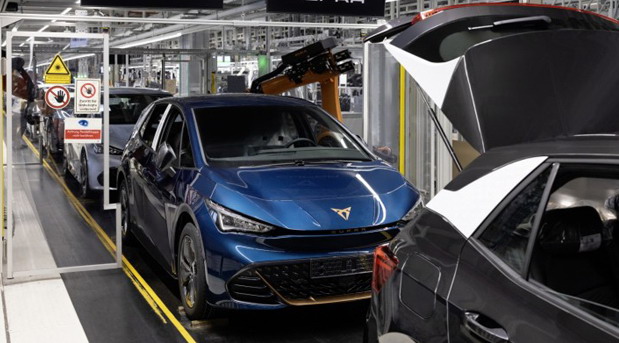The registration of new cars in the European Union continued its downward trajectory in September, by 6.1 percent, according to data from the Association of European Automobile Manufacturers (ACEA).
The European auto industry is in a hurry, it wants to reduce the import and sale of Chinese cars on its market (which is why it introduced additional tariffs), but also to direct its production towards electric vehicles because the year 2035 is not as far away as it seems. Let us remind you, then the car companies should stop the production of vehicles on fossil fuels – gasoline and diesel.
Negative results of new car registrations were recorded in three of the four main markets in the region: France (11.1 percent), Italy (10.7 percent) and Germany (seven percent). On the other hand, Spain manages to make things not so bleak, with growth of 6.3 percent.

In the first nine months of this year, the registration of new cars, despite everything, managed to remain at a stable level – it exceeded 0.6 percent and reached almost eight million units.

Spain also has a positive result here with 4.7 percent of newly registered cars, followed by Italy with 2.1 percent, while the French and German car markets recorded a drop of 1.8 and one percent, respectively.
Electric car registrations rose 9.8 percent to 139,702 units in September 2024. However, year-to-date sales volume was still 5.8 percent lower than the same period last year, with overall market share falling to 13.1 percent from 14 percent, driven by a significant drop in Germany of as much as 28.6 percent.
Registrations of plug-in hybrid cars fell by 22.3 percent in September, in all major markets. In September, plug-in hybrids accounted for 6.8 percent of the car market, down from 8.2 percent last year, with 54,889 units sold.
Registrations of hybrid electric vehicles increased by 12.5 percent in September. The market share is now 32.8 percent, compared to 27.4 percent in September 2023, surpassing petrol stations.
Namely, in September the sale of gasoline cars fell by 17.9 percent, with all four key markets recording a double-digit decline: France (31.9 percent), Italy (23.3 percent), Germany (15.2 percent). and Spain (10.7 percent). Gasoline cars now represent 29.8 percent of the market, down from 34 percent in the same month last year.
The diesel car market saw a 23.5 percent decline, resulting in a 10.4 percent market share last September. Overall, the decline was recorded in two thirds of the EU market.
The end of the year, that is, the last quarter, will show how new EU measures will affect sales, as well as crises in auto giants such as Volkswagen and BMW – which recorded a 61 percent drop in operating profit in the third quarter.

China remains the leader in e-car sales
Sales of electric vehicles hit a record in October with 1.7 million units sold, boosted by strong demand in China, UK-based research firm Rho Motion said on Wednesday.
Sales increased by 35 percent on an annual basis and three percent on a monthly basis, data from Rho Motion reported by Anadolu Agency showed.
China’s electric vehicle market accounted for the largest share of sales last month with 1.2 million units sold, recording a record monthly growth of six percent, up more than 50 percent year-on-year.
Great Britain, the EU and the countries of the European Free Trade Association (EFTA) – Iceland, Liechtenstein, Norway and Switzerland – together registered just over 260,000 electric vehicles sold in October, with annual growth of one percent.
Source:
Biznis.rs
Photo: Archive Autoblog.rs / Škoda / BMW / Cupra / Mini
Source: autoblog.rs


